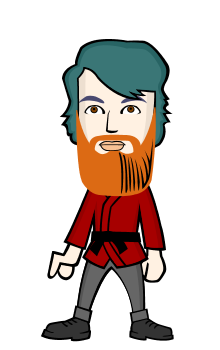Because Althusser held that a person's desires, choices, intentions, preferences, judgements, and so forth are the products of social practices, he believed it necessary to conceive of how society makes the individual in its own image. Within capitalist societies, the human individual is generally regarded as asubject endowed with the property of being a self-conscious, "responsible" agent whose actions can be explained by his or her beliefs and thoughts. For Althusser, however, a person's capacity for perceiving him or herself in this way is not innate or given. Rather, it is acquired within the structure of established social practices, which impose on individuals the role (forme) of a subject.[52] Social practices both determine the characteristics of the individual and give him or her an idea of the range of properties that he or she can have, and of the limits of each individual. Althusser argues that many of our roles and activities are given to us by social practice: for example, the production of steelworkers is a part of economic practice, while the production of lawyers is part of politico-legal practice. However, other characteristics of individuals, such as their beliefs about the good life or their metaphysicalreflections on the nature of the self, do not easily fit into these categories.
In Althusser's view, our values, desires, and preferences are inculcated in us by ideological practice, the sphere which has the defining property of constituting individuals as subjects.[53] Ideological practice consists of an assortment of institutions called "Ideological State Apparatuses" (ISAs), which include the family, the media, religious organisations, and most importantly in capitalist societies, the education system, as well as the received ideas that they propagate.[54] There is, however, no single ISA that produces in us the belief that we are self-conscious agents. Instead, we derive this belief in the course of learning what it is to be a daughter, a schoolchild, black, a steelworker, a councillor, and so forth.
Despite its many institutional forms, the function and structure of ideology is unchanging and present throughout history;[55] as Althusser states, "ideology has no history".[56] All ideologies constitute a subject, even though he or she may differ according to each particular ideology. Memorably, Althusser illustrates this with the concept of "hailing" or "interpellation". Drawing heavily from Lacan and his concept of the Mirror Stage,[57] he compares ideology to a policeman shouting "Hey you there!" toward a person walking on the street. Upon hearing this call, the person responds by turning around and in doing so, is transformed into a subject.[58] The person is conscious of being a subject and aware of the other person. Thus, for Althusser, being aware of other people is a form of ideology. Within that, Althusser sees subjectivity as a type of ideology. The person being hailed recognizes him or herself as the subject of the hail, and knows to respond.[59] Althusser calls this recognition a "mis-recognition" (méconnaissance),[60] because it works retroactively: a material individual is always already an ideological subject, even before he or she is born.[61] The "transformation" of an individual into a subject has always already happened; Althusser here acknowledges a debt to Spinoza's theory of immanence.[61] To highlight this, Althusser offers the example of Christian religious ideology, embodied in the Voice of God, instructing a person on what his place in the world is and what he must do to be reconciled with Christ.[62] From this, Althusser draws the point that in order for that person to identify himself as a Christian, he must first already be a subject; that is, by responding to God's call and following His rules, he affirms himself as a free agent, the author of the acts for which he assumes responsibility.[63] We cannot recognize ourselves outside of ideology, and in fact, our very actions reach out to this overarching structure. For Althusser, we acquire our identities by seeing ourselves mirrored in ideologies.[64]



